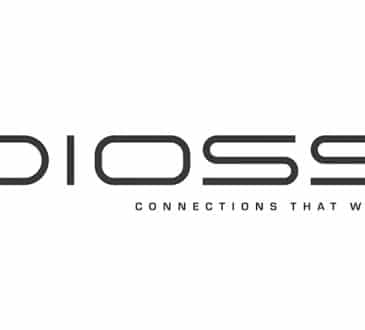The Strategy of Release

A software developer friend years ago kept no more than sixteen emails in his inbox at any time. If the list got too long, he would open each message, take whatever action was needed, delete it and wipe it from his trash folder, always culling the list back down to sixteen or less. I asked him if that number had specific meaning, and he replied that it was just a “small, manageable number”. At the time, I had 8700 emails in my inbox, so this efficiency discipline seemed unthinkable. But the most important lesson was when he said he considered his inbox to be a form of noise. That intriguing association put my mind in overdrive. I started seeing evidence of mental noise everywhere I looked.
Lifestyle coaches and efficiency experts have long referred to clutter as visual noise, touting the psychological benefits of clearing space and releasing old attachments. And those benefits are obvious because we can see and feel them in our environment. There’s a natural instinct to hold onto things, and those objects often reinforce the stories of who we are and how we define ourselves. So the thorny notion of releasing ends up feeling risky, complex, and potentially painful.
The Problem of Letting Go
The distraction of clutter slows us down and obfuscates the purpose that underlies our daily tasks and activity. Letting go of things involves time, planning, emotional awareness, and courage. It can feel exhausting because it requires complex decision making. The meaning of certain items changes over time because we change. Our challenges change us, and so our definitions of what’s meaningful and necessary also change. Do we keep or store, give away, recycle, toss, and where do we properly dispose of these things to maximize the benefits?
If you keep boxes of memorabilia, when was the last time you sorted through them item by item? Now think about your business. Do you keep a storage closet or rent an off-site unit? When was the last time you visited this space, opened every box and went through the contents? Five years ago, twenty? You might have legitimately needed everything back then. Do you still?
Fear is a common obstacle to releasing long-held possessions. You feel like giving up an item means giving up a part of yourself. Fear of change is universal, but fear of loss might be an even deeper driver of our unconscious decisions. We don’t want to feel empty, so we hold things close to remind us of our human connections. The ego gets involved because we keep things from our past as evidence of accomplishments and competency. There’s no single right answer or a formula that works for everyone. Keep what you need, release what you don’t. Tidying up your living room is easy. But what about the clutter you can’t see?
Executive Challenges
A common complaint among CEOs is not having enough time to themselves. Aggressive travel schedules combined with long hours and endless calls and meetings means no time, other than airports or waiting rooms, to think, plan and reflect on where your company is going. By making releasing a corporate priority, you can involve trusted team members and business leaders in your vision to let go of what’s no longer needed and ask for recommendations for what should be on that list. Your goals could be reducing waste and increasing efficiency, or just simply downsizing what you maintain in storage.
Practically speaking, there’s no opportunity cost to decluttering, other than time you’re not spending acquiring more things. What can you clear out of your immediate environment to create more space for positive change?
Start with your desk. Decluttering your workspace will have immediate, notable benefits to your peace of mind, concentration, and well-being. Next, take that lean perspective and apply it to your office space and daily operations. Releasing sharpens our focus on what really matters, boosts energy and ignites more productivity. It can clear space for innovative ideas and new possibilities, and clarify what your business really needs to be successful.
Email Hygiene
Sixteen emails might be extreme, but even small changes here can have a noticeable impact on your mental health and schedule. Keeping your inbox organized makes it easier to find what you need faster and eliminate endless scrolling. Start with just fifteen minutes a day:
- Regularly empty trash, spam, and drafts folders
- Revisit the emails you’ve subscribed to – do you actually read them? If not, consider unsubscribing, search, select, and delete
- Create email rules so frequent emails get routed to folders
- Use tags to label emails requiring immediate action
- Set email reminders
If you’re like me, once you initiate the releasing process, it becomes a compulsive runaway train. You’ll start looking at things differently, like cutting down on unnecessary meetings, consolidating tasks, and envisioning what you really need to evolve your leadership and transform your business.
Releasing is an art and a science. Your willingness to dig into your past and let go of things that no longer serve you is rewarded by the unbridled freedom that comes from cutting those cords.
Written by Lisa Towles.
Have you read?
Wealthiest Sports Owners in the World?
World’s Richest Actors And Their Net Worth.
World Richest Tennis Players And Their Net Worth.
Richest NFL (National Football League) Players.
Top CEOs in Singapore, 2023.
Add CEOWORLD magazine to your Google News feed.
Follow CEOWORLD magazine headlines on: Google News, LinkedIn, Twitter, and Facebook.
Copyright 2024 The CEOWORLD magazine. All rights reserved. This material (and any extract from it) must not be copied, redistributed or placed on any website, without CEOWORLD magazine' prior written consent. For media queries, please contact: info@ceoworld.biz








